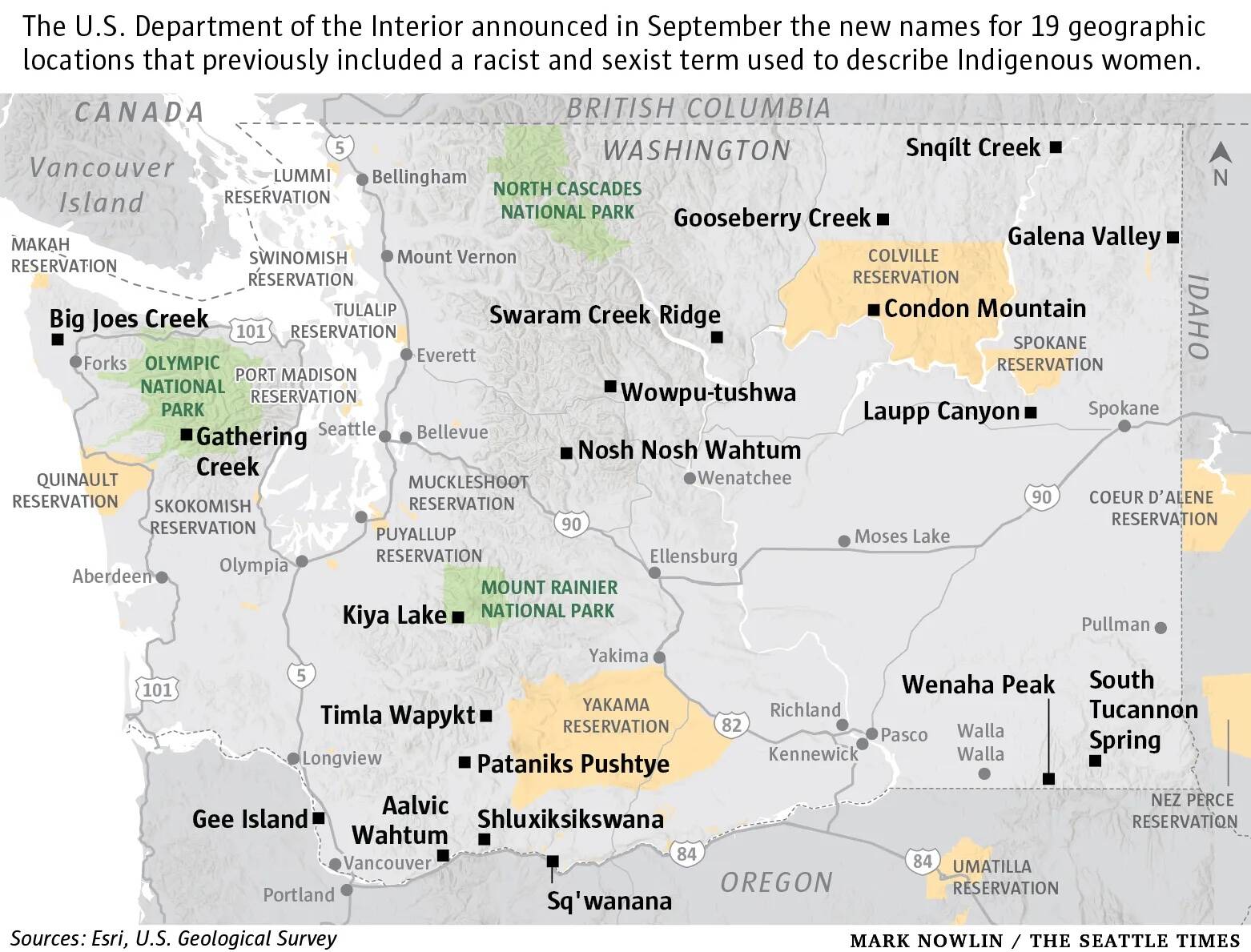For too long, according to Lia Frenchman, a Historical Preservation Technician for the Quinault Indian Nation, a stream just east of their reservation in the Olympic National Park has been named Squaw Creek.
“The history of this particular name is unknown,” wrote Olympic National Park historian Matt Dubeau, who researched the origin of the name.
Many of the names in the Olympic National Park and Olympic Mountains are coined from a Seattle Washington Press Expedition in 1889-1890 or perhaps EuroAmerican explorers to the Olympic Peninsula.
Until now.
Meet the Noskeliikuu. A 0.75 mile high-elevation stream that flows northeast into the North Fork of the Quinault River.
“The name was submitted by the Quinault Indian Nation as part of an effort to replace feature names containing the word ‘squaw,’” Frenchman wrote in an application to the Washington State Board on Geographic Names to change the name. “The proposed name means ‘the place where the whale dropped’ after an event witnessed by Quinault ancestors in the area. The name for the feature has been used in oral histories for at least four generations.”
In late September of this year the Department of the Interior announced a list of candidate replacement names for more than 660 geographic features with the name “squaw,” which was officially declared a derogatory term as a result of Secretary’s Order 3404, according to a press release.
Secretary’s Order 3404 established the 13-member Derogatory Geographic Names Task Force, which includes representatives from the Department’s Bureau of Indian Affairs, Bureau of Land Management, Bureau of Safety and Environmental Enforcement, National Park Service, Office of Diversity, Inclusion and Civil Rights, Office of Surface Mining Reclamation, and U.S. Geological Survey. The Department of Agriculture’s U.S. Forest Service is also a member.
The Task Force’s first action was to finalize a decision to replace a full spelling of the derogatory term with “squaw” for all official related communications.
“Words matter, particularly in our work to make our nation’s public lands and waters accessible and welcoming to people of all backgrounds. Consideration of these replacements is a big step forward in our efforts to remove derogatory terms whose expiration dates are long overdue,” said Secretary Deb Haaland. “Throughout this process, broad engagement with Tribes, stakeholders and the general public will help us advance our goals of equity and inclusion.”
Prior to the implementation of the Task Force, changes to derogatory names for geographic features were submitted as a proposal to the Board on Geographic Names, which then worked through its deliberative process. The BGN has received 261 proposals to replace geographic features with squaw in the name in the past 20 years.
Tribal consultations and a public comment period announced in the Federal Register will give the Task Force the chance to seek additional candidate names and feedback from Tribes and the public. The Task Force will prioritize these names in its review and provide a final recommendation for the BGN to vote on when it convenes later this year.
The Noskeliikuu
Nearby to this creek is Three Prune, Wild Rose and Elip creeks.
This area is known to have been used by the Native Americans of the area for their seasonal rounds. Many important high elevation medicinal plants might be found at this elevation and only collected during the summer months.
It is possible that the expedition or other historic colonial-settler may have seen a Native American gathering, according to Olympic National Park Service Park Archaeologist Dave Conca.
“(The) current name is based in racism towards the People of the area and we are replacing this derogatory name with an event place name from the language of the People. We used oral history and additional background research on the existing name,” Debeau said.
The name change was vetted through the Quinault Cultural Advisory Committee, the Natural Resources and Community Development subcommittee and advised by appropriate cultural leaders.


